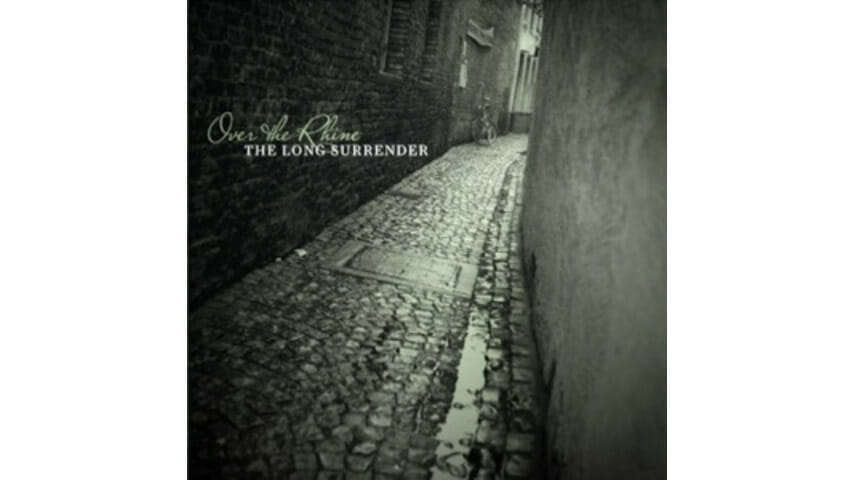Over the Rhine: The Long Surrender

Giving up never sounded so good
“When you ain’t got nothing, you got nothing to lose,” Bob Dylan once famously sang, and Cincinnati’s Over the Rhine delivers an hour-long treatise on that sentiment on The Long Surrender, their latest in a series of criminally overlooked albums.
Okay, maybe not nothing, but close enough. When Over the Rhine solicited their fans to pony up their hard earned cash so that this album could be recorded, it was clear that the old business model wasn’t working. And perhaps in those circumstances musicians don’t particularly care about singles and iTunes downloads and radio play. Maybe they just let it rip. Whatever the case, Over the Rhine pooled their meager resources and headed out to South Pasadena to record with renowned producer Joe Henry and his fine house band. The always splendidly ragged Lucinda Williams showed up to sing one day. Songwriting couple Linford Detweiler and Karin Bergquist, aided and abetted by two stellar contributions from Henry, delivered another finely observed batch of songs. And the resulting album is the most emotionally raw and musically nuanced of the band’s fine career.
-

-

-

-

-

-

-

-

-

-

-

-

-

-

-

-

-

-

-

-

-

-

-

-

-

-

-

-

-

-

-

-

-

-

-

-

-

-

-

-








































